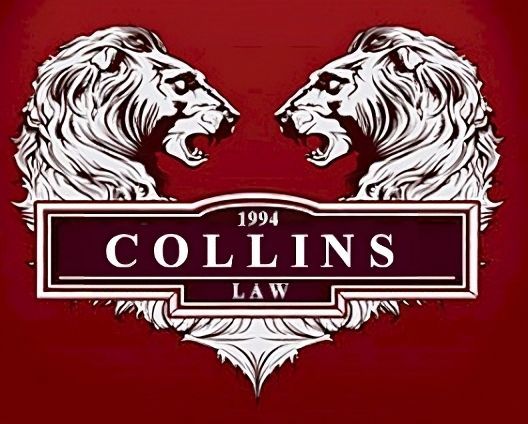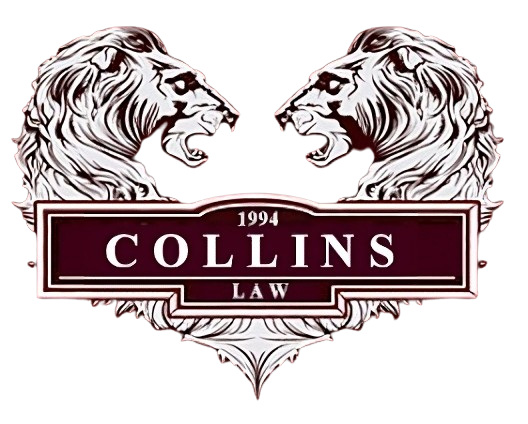DUI Checkpoints: What Are Your Rights and How Can You Legally Protect Yourself

Getting stopped at a DUI checkpoint can be a nerve-wracking experience—even for drivers who haven’t had a single drink. The flashing lights, uniformed officers, and unexpected delay can make anyone feel uneasy. But if you know your rights and how to respond legally and respectfully, you can protect yourself and avoid unnecessary complications.
At Collins & Associates, we believe that every driver should understand how
DUI checkpoints work, what officers are legally allowed to do, and how you can protect your rights without escalating the situation. In this guide, we’ll walk you through everything you need to know about navigating a DUI checkpoint, including what to expect, how to respond, and when to contact a
DUI lawyer.
What Is a DUI Checkpoint?
A DUI checkpoint, also known as a sobriety checkpoint or roadblock, is a temporary stop set up by law enforcement to check drivers for signs of intoxication. Officers typically stop vehicles in a specific pattern—like every third car—and briefly question drivers to assess whether they might be impaired.
These checkpoints are legal in many states (including Indiana), provided they meet specific constitutional requirements. Law enforcement must announce the checkpoint in advance, follow a neutral pattern for stopping vehicles, and ensure the checkpoint causes minimal disruption.
Are DUI Checkpoints Legal?
Yes—but only under certain conditions. The U.S. Supreme Court ruled in Michigan Dept. of State Police v. Sitz (1990) that DUI checkpoints are constitutional as long as they serve a public safety interest and follow strict guidelines to protect individual rights.
However, not all states permit DUI checkpoints. Indiana, for example, does allow them, but they must comply with legal standards such as:
- Having a clearly defined and limited time frame.
- Being publicly announced in advance.
- Using a neutral and objective method to stop vehicles.
- Having a visible law enforcement presence.
If you believe a checkpoint violated your constitutional rights, contact a
DUI defense attorney immediately.
What to Expect at a DUI Checkpoint
When approaching a DUI checkpoint, you'll usually see signs alerting you in advance. Here’s what typically happens:
- You slow down or stop as directed by officers.
- An officer may ask to see your license and registration.
- You may be asked a few questions, such as “Have you had anything to drink tonight?”
- If there’s reasonable suspicion, you may be asked to pull over for additional screening or field sobriety testing.
It's crucial to remain calm, polite, and compliant with lawful orders—but you also have rights that protect you from unlawful searches and self-incrimination.
Know Your Rights at a DUI Checkpoint
Being stopped at a DUI checkpoint doesn't mean you lose your constitutional rights. Here’s what you are—and aren’t—required to do:
✔️ You Must:
- Provide your driver’s license, registration, and proof of insurance.
- Comply with lawful commands from police officers.
❌ You Don’t Have to:
- Answer questions like “Where are you coming from?” or “Have you been drinking?”
You can politely say, “I prefer not to answer.” - Consent to a search of your vehicle without probable cause.
- Take field sobriety tests (these are voluntary in Indiana). However, refusing a chemical test after arrest can result in license suspension.
Important Tip: Always be polite and non-confrontational. Refusing to answer questions is your right, but doing so with hostility can escalate the situation unnecessarily.
How to Protect Yourself Legally
To avoid trouble and protect yourself during a DUI checkpoint stop, follow these legal tips:
✅ Stay Calm and Cooperative
Panicking or acting suspiciously can increase an officer's scrutiny. Keep your hands visible, don’t make sudden movements, and stay respectful.
✅ Don’t Volunteer Information
You’re not required to offer details about where you’ve been or whether you’ve consumed alcohol. Politely decline to answer non-required questions.
✅ Refuse Field Sobriety Tests Politely
In many states, including Indiana, you can legally decline field sobriety tests. These tests are subjective and can sometimes give false positives, even if you’re sober.
✅ Know Your Chemical Test Obligations
Indiana’s "Implied Consent" law means that if you're lawfully arrested for suspected DUI, you must take a chemical test (breath, blood, or urine). Refusal can lead to immediate license suspension and other penalties.
✅ Contact a DUI lawyer Immediately
If you’re detained or arrested, remain silent and request an attorney. The sooner a DUI lawyer can step in, the better your chances of building a strong DUI defense.
Common Myths About DUI Checkpoints
Let’s clear up a few misconceptions:
❌ “I can’t turn around once I see a checkpoint.”
FALSE. You have the legal right to turn around, as long as you do so safely and legally. However, if the police have reasonable suspicion that you’re avoiding the checkpoint to hide something, they may still stop you.
❌ “If I pass the breathalyzer, I’m in the clear.”
FALSE. Officers may still arrest you if they believe you're impaired based on other signs, like slurred speech or erratic behavior.
❌ “I can’t be arrested if I wasn’t drinking.”
FALSE. DUI laws apply to alcohol and drugs (even prescription medications). If you're impaired in any way, you could face charges.
When Should You Hire a DUI Lawyer?
If you're arrested or charged after a DUI checkpoint, it’s critical to speak with a qualified DUI lawyer immediately. A skilled attorney can:
- Evaluate whether the checkpoint was conducted legally.
- Challenge the validity of field sobriety and chemical tests.
- Negotiate reduced charges or penalties.
- Represent you in court to ensure your rights are protected.
At Collins & Associates, we specialize in DUI defense and have helped countless drivers across Indiana protect their licenses, reputations, and freedom.
Be Prepared, Not Paranoid
Being informed is your best defense. While DUI checkpoints are legal tools for public safety, they can also lead to unjust arrests and rights violations if you're not careful. By understanding what to expect, knowing how to respond, and securing the right legal representation, you’ll be in the best position to protect yourself.
If you or a loved one has been stopped or arrested at a DUI checkpoint, don’t leave your future to chance. Reach out to us for a free consultation. Our experienced team will fight to protect your rights and provide aggressive DUI defense tailored to your situation.
Contact Collins & Associates Today
We’re here to help you navigate the legal system with confidence—and fight for the best possible outcome in your case.If you or someone you know is facing DUI charges, don’t leave your future to chance. Contact Collins & Associates today at 812-475-1234 or email us at rich@collins-law.com to schedule a confidential consultation.
Our experienced team is ready to listen, advise, and advocate on your behalf. Let us help you turn the tide with smart, strategic, and personalized DUI legal defense.
Frequently Asked Questions
1. What should I do if I'm stopped at a DUI checkpoint?
If you're stopped at a DUI checkpoint, remain calm, keep your hands visible, and comply with lawful requests such as providing your license and registration. You are not required to answer questions like whether you've been drinking. Politely decline to answer and avoid volunteering information. If you're detained or arrested, contact a DUI lawyer immediately to begin building your DUI defense
2. Can a DUI lawyer help me if I was arrested at a DUI checkpoint?
Yes, a skilled DUI lawyer can assess whether the DUI checkpoint followed legal procedures and identify any violations of your constitutional rights. If law enforcement failed to meet proper standards, your attorney may be able to suppress evidence or even get your case dismissed as part of a strong DUI defense strategy.
3. Is it legal to turn around before reaching a DUI checkpoint?
Turning around before a DUI checkpoint is not illegal, as long as you do so safely and without violating traffic laws. However, making an illegal U-turn or acting suspiciously may give officers reasonable suspicion to stop you. If you're stopped and questioned, contact a DUI lawyer to ensure your DUI defense is protected.
4. What are my rights during a DUI checkpoint stop?
At a DUI checkpoint, you have the right to remain silent beyond providing your identification, registration, and insurance. You may refuse field sobriety tests, which are voluntary in most states. If arrested, invoke your right to an attorney and contact a qualified DUI lawyer to begin planning your DUI defense.
5. How does hiring a DUI lawyer improve my chances of a successful DUI defense?
Hiring a knowledgeable DUI lawyer ensures that your rights are protected and that any errors or misconduct during a DUI checkpoint stop are properly challenged. An experienced attorney can examine video footage, breathalyzer calibration records, and police reports to uncover weaknesses in the prosecution’s case and develop a personalized DUI defense strategy.

